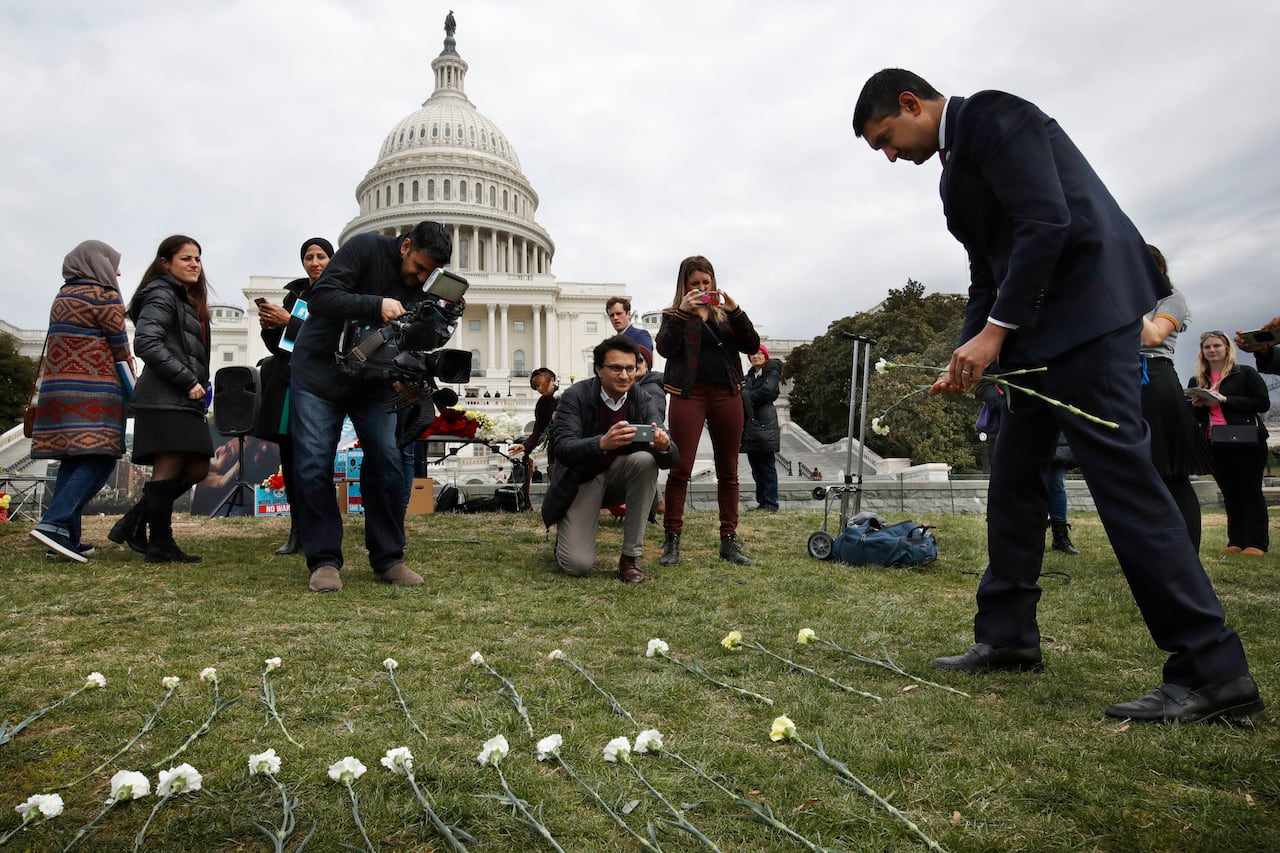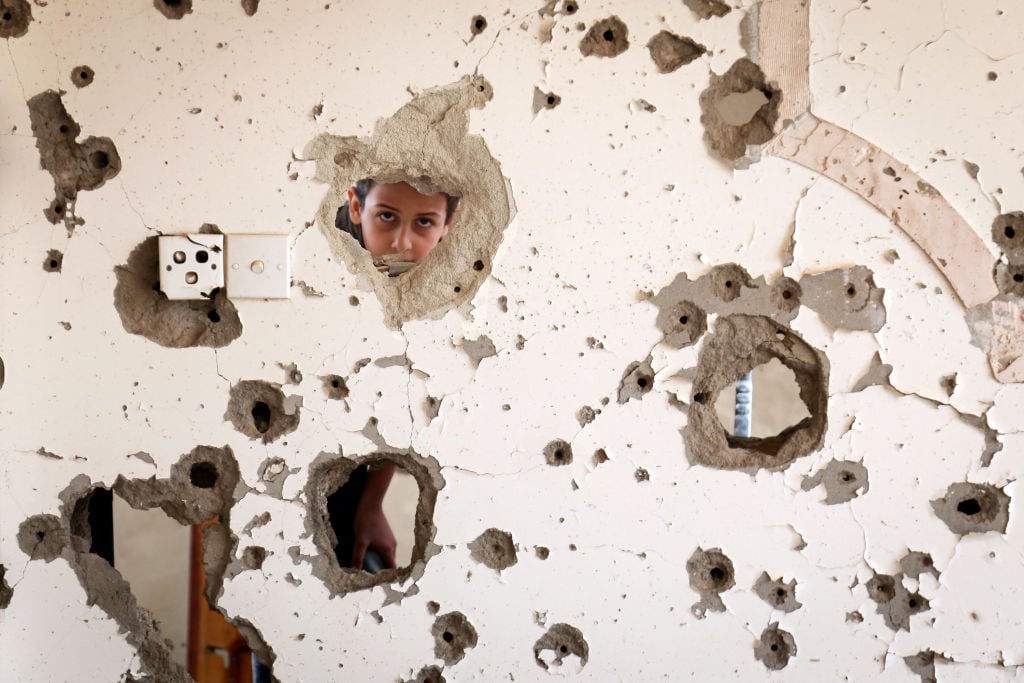WASHINGTON — The Trump administration is calling for an urgent halt to the Saudi-Iran proxy war in Yemen and the start of negotiations in November toward a political settlement of a conflict that has pushed millions to the brink of starvation in the Arab world’s poorest country.
The renewed push for a political solution in Yemen comes amid growing criticism of U.S. military support for Saudi Arabia’s Yemen air campaign and American arms sales to the Saudis, in the aftermath of the killing of Saudi writer Jamal Khashoggi in the Saudi Consulate in Turkey.
U.S. Secretary of State Mike Pompeo urged a cease-fire, specifically citing missile and drone strikes into Saudi Arabia and the United Arab Emirates from Houthi-controlled areas of Yemen. The Houthis are supported by Iran. He added that the airstrikes by the Arab coalition, backed by the U.S., “must cease in all populated areas in Yemen.”
"The time is now for a cessation of hostilities," Pompeo said in a written statement Tuesday evening shortly after Defense Secretary Jim Mattis made similar statements in an appearance at the United States Institute of Peace. He urged the implementation of "confidence-building measures" to address the underlying issues of the conflict.
Mattis was more specific than Pompeo in his call for urgent movement toward a political solution to the fighting, under peace talks being urged by U.N. Special Envoy Martin Griffiths. Mattis said a cease-fire should take effect within 30 days.
RELATED

"We're calling on all the parties, specifically the Houthis and the Arab coalition, to meet in Sweden in November and to come to a solution," Mattis said.
Sweden's foreign minister said Wednesday that Griffiths has asked Sweden to host such talks.
Griffiths on Wednesday welcomed the U.S. calls for immediate resumption of the political process and said the United Nations remains committed "to bring the Yemeni parties to the negotiations table within a month."
“I urge all concerned parties to seize this opportunity to engage constructively with our current efforts to swiftly resume political consultations to agree on a framework for political negotiations, and confidence-building measures, in particular enhancing the capacities of the Central Bank of Yemen, the exchange of prisoners and the re-opening of Sanaa airport,” Griffiths said in a statement.
He stressed that there can be no military solution and that “dialogue remains the only path to reach an inclusive agreement.”
Mattis called for demilitarization of Yemen's border with Saudi Arabia "so that the Saudis and the Emirates do not have to worry about missiles coming into their homes and cities and airports." He also said measures should be taken to "ensure that all Iranian-supplied missiles to the Houthis" are put under "international watch."
"This has got to end. We've got to replace combat with compromise," Mattis said.
Mattis put primary blame on Iran. He said its proxies and surrogate forces are fueling the conflict.
“They need to knock it off,” he said. Mattis said the political process should “set the conditions for a return to traditional areas inside Yemen and a government that allows for this amount of local autonomy that Houthis or that southerners want.”
The administration’s new push for peace comes amid mounting fears of a fresh Arab coalition assault on the Red Sea port of Hodeida, a city that has been the lifeline for international aid deliveries to Yemen. The city’s port is helping keep millions of starving Yemenis alive by serving as the entry point for 70 percent of food imports and international aid. A protracted siege of Hodeida by the coalition could imperil that support.
The conflict in Yemen, the Arab world’s poorest country, began with the 2014 takeover of the capital, Sanaa, by the Houthis, who toppled the internationally recognized government. The Saudi-led coalition allied with the government has been fighting the Houthis since 2015. An estimated 10,000 people have been killed so far, and the conflict has devastated Yemen and pushed it to the brink of famine. The war has also left about two-thirds of Yemen’s population of 27 million relying on aid, and more than 8 million at risk of starvation.









